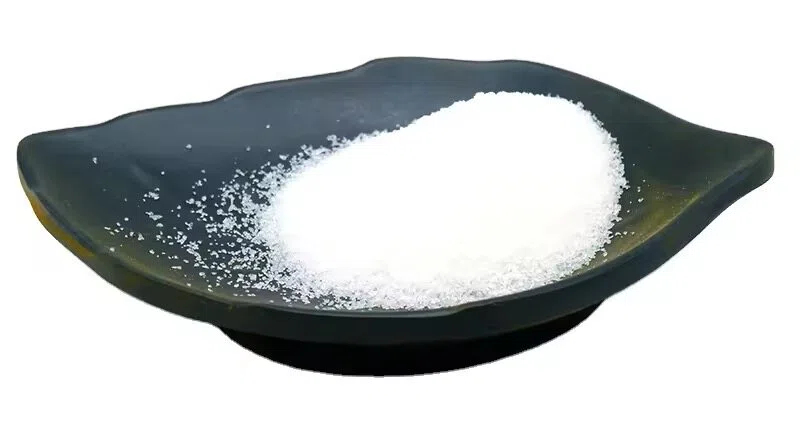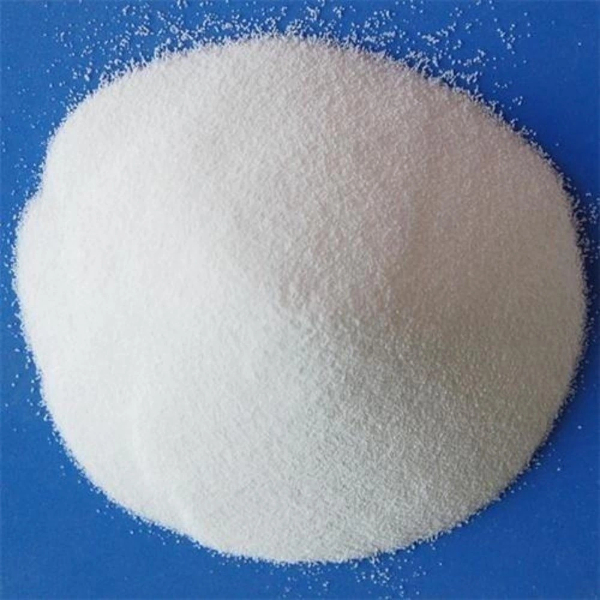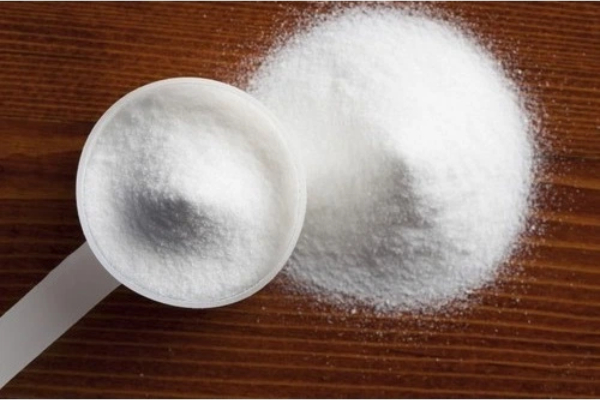Views: 222 Author: Sara Publish Time: 2025-10-21 Origin: Site








Content Menu
● Indonesian Isomaltulose Market Overview
● Leading Isomaltulose Manufacturers and Suppliers in Indonesia
>> PT Madusari Murni Indah Tbk (Molindo Group)
>> Azelis Indonesia and Other Distributors
● Isomaltulose Production Process in Indonesia
● Applications of Isomaltulose in Indonesia
● Industry Trends and Future Outlook
● FAQ
>> 1. What makes isomaltulose a preferred sweetener in Indonesia?
>> 2. Who are the leading isomaltulose manufacturers in Indonesia?
>> 3. What industries commonly use isomaltulose in Indonesia?
>> 4. How is isomaltulose produced industrially?
>> 5. Are there regulatory standards for isomaltulose in Indonesia?
Isomaltulose, a natural sugar alternative with a low glycemic index, is gaining rapid traction globally and especially in Indonesia due to rising health consciousness and demand for healthier food ingredients. Used extensively in food, beverage, and healthcare products, isomaltulose is valued for its slow digestion and sustained energy release. Indonesia's expanding food industry and increasing interest in functional sweeteners have made it a fertile market for isomaltulose manufacturers and suppliers. This article delves into the top isomaltulose producers and distributors in Indonesia, providing insight into the industry, production processes, and market trends.

Isomaltulose is a disaccharide carbohydrate composed of glucose and fructose linked by an α-1,6-glycosidic bond. Naturally occurring in small amounts in honey and sugar cane juice, isomaltulose differs from sucrose by its slow metabolism in the human body, which helps maintain stable blood sugar levels and supports dental health. This functional sweetener's unique properties make it highly suitable for diabetic-friendly foods, sports nutrition, and low-glycemic products, driving its increasing adoption in the food and beverage sectors.
Indonesia's food and beverage industry is evolving toward healthier ingredient options amid public health initiatives and consumer demand for clean-label products. Natural sweeteners like isomaltulose are becoming staples in this transformation. The country's abundant sugarcane production and well-established fermentation industries provide the infrastructure to support local isomaltulose manufacturing and supply. Increasing exports and collaborations with international ingredient suppliers further enhance market growth potential.
As Indonesia's largest producer of food-grade ethanol and sugar derivatives, PT Madusari Murni Indah Tbk stands out as a key player in isomaltulose production. Headquartered in East Java, Molindo utilizes sustainable sugarcane molasses as its core raw material in producing high-purity sugar derivatives. Its fermentation technology and zero-waste processes exemplify environmentally responsible manufacturing. Molindo's ISO certifications and commitment to quality have made it a trusted source for domestic and international markets. Although primarily known for ethanol and sugar derivatives, its advanced capabilities and collaboration potential position it strongly for producing isomaltulose blends.
A subsidiary of the global Mitsui Group, PT Mitsui Indonesia operates as a major importer and distributor of specialty chemicals, including functional sweeteners such as isomaltulose. The company offers comprehensive supply chain solutions and technical support, facilitating the entry and distribution of isomaltulose products across Indonesian food, beverage, and healthcare manufacturers. Mitsui's extensive logistics network helps bridge international manufacturers with Indonesian industries, enhancing product availability and market penetration.
International ingredient distributors like Azelis maintain an active presence in Indonesia, bringing innovation in specialty chemicals and functional food ingredients. These companies provide a wide assortment of isomaltulose grades, along with R&D and technical formulation assistance. Smaller specialty suppliers and chemical firms also serve niche sectors, helping local food producers reformulate products with healthier sugar substitutes.
The industrial production of isomaltulose commonly involves the enzymatic isomerization of sucrose derived from sugarcane or beet molasses. The process begins with preparing a sucrose solution, typically at 35-45% concentration, which undergoes enzymatic conversion catalyzed by immobilized sucrose isomerase derived from microorganisms like Protaminobacter rubrum. This enzyme rearranges the glycosidic bond to produce isomaltulose, with minor by-products such as trehalulose, glucose, and fructose. After conversion, purification processes including heat sterilization, ion-exchange, evaporation, and vacuum drying yield high-purity isomaltulose syrup or crystallized powder. Additional crystallization steps enhance purity to over 98%.
The production method balances high yield, enzymatic efficiency, and purity to meet food-grade quality standards. Indonesian manufacturers typically utilize advanced fermentation and processing technologies adhering to regulatory standards by the National Agency of Drug and Food Control (BPOM), ensuring product safety and efficacy.

Isomaltulose has diverse applications across Indonesia's food and healthcare sectors. Major uses include bakery products, confectionery, and dairy formulations where its low glycemic impact supports healthier product positioning. Beverage producers utilize isomaltulose in energy drinks, sports nutrition drinks, and functional mineral drinks seeking to provide prolonged energy without sugar spikes. Additionally, dietary supplements and healthcare products incorporate isomaltulose to formulate diabetic-friendly and dental-conscious options.
Indonesia's isomaltulose market is expected to grow robustly, driven by increasing diabetes prevalence, growing consumer preference for functional and low-glycemic foods, and supportive government health initiatives. Collaborative ventures between Indonesian and international manufacturers are anticipated to introduce innovative sweetener blends and expand production capacities. The expansion of e-commerce and modern retail channels further facilitates consumer access to isomaltulose-enriched products. Research and development investments focusing on sugar alternatives are projected to stimulate new product introductions, strengthening Indonesia's position in the global functional sweetener market.
Indonesia's isomaltulose manufacturing and supply landscape is marked by robust growth potential backed by leading producers like PT Madusari Murni Indah Tbk and distributors such as PT Mitsui Indonesia. The ongoing health-driven shift in consumer habits, combined with technological advancements and regulatory support, is set to propel isomaltulose into a mainstream ingredient for food, beverage, and healthcare formulations. Indonesian manufacturers and international collaborators have a significant opportunity to leverage this trend and address rising market demands with innovative, high-quality isomaltulose products.

Isomaltulose is favored due to its low glycemic index, providing slow and sustained energy release without causing blood sugar spikes. It is also tooth-friendly and supports better metabolic health, making it ideal for diabetic-friendly and functional foods.
PT Madusari Murni Indah Tbk (Molindo Group) is a premier manufacturer, supported by international distributors like PT Mitsui Indonesia and Azelis bringing global isomaltulose products into the Indonesian market.
The bakery, dairy, confectionery, beverage, and dietary supplement industries are primary users, incorporating isomaltulose to formulate healthier, low-glycemic, and functional products.
Production involves enzymatic isomerization of sucrose from sugarcane or beet molasses using immobilized sucrose isomerase, followed by purification processes such as heat sterilization, ion-exchange, evaporation, and crystallization to produce high-purity isomaltulose.
Yes, Indonesian regulations enforced by BPOM ensure that isomaltulose used in food products meets safety and quality standards, including claims on sweetness and health functionality.
[1](https://magistralbr.caldic.com/storage/product-files/16290167.pdf)
[2](https://pmc.ncbi.nlm.nih.gov/articles/PMC11048954/)
[3](https://www.frontiersin.org/journals/nutrition/articles/10.3389/fnut.2024.1489912/pdf)
[4](https://patents.google.com/patent/EP0983374A1/en)
[5](https://patents.google.com/patent/US6146856A/en)
[6](https://www.fda.gov/files/food/published/GRAS-Notice-000681---Isomaltulose.pdf)
[7](https://en.wikipedia.org/wiki/Isomaltulose)
[8](https://dpointernational.com/question/kindly-provide-the-regulatory-updates-in-indonesia-for-sweetener-and-vegan-claim/)
[9](https://pmc.ncbi.nlm.nih.gov/articles/PMC5409720/)
[10](https://jdih.pom.go.id/download/rule/1562/1/2022/Regulatoin%20of%20the%20Indonesian%20Food%20and%20Drug%20Authority%20Number%201%20of%202022%20on%20Control%20of%20Claim%20on%20Processed%20Food%20Labels%20and%20Advertisements)
